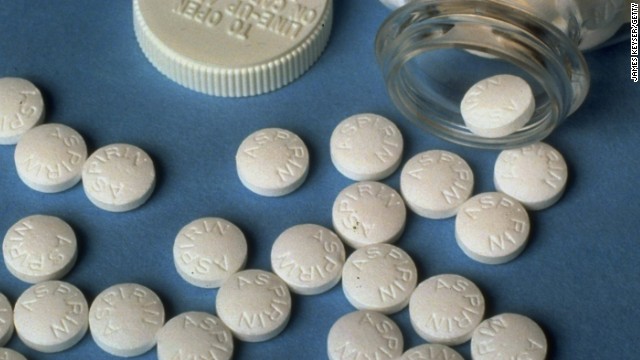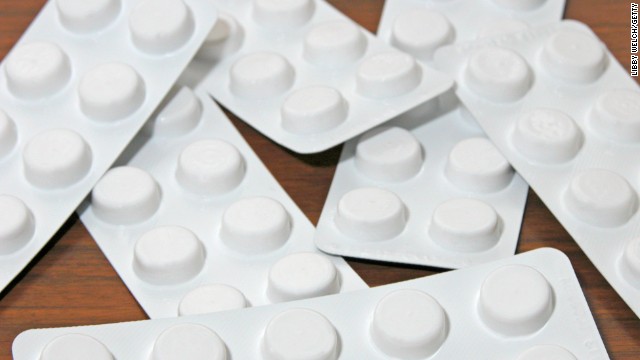<div class="cnn_strycntntlft"> .cnn_html_media_utility::before{color:red;content:'>>';font-size:9px;line-height:12px;padding-right:1px}.cnnstrylccimg640{margin:0 27px 14px 0}.captionText{filter:alpha(opacity=100);opacity:1}.cnn_html_slideshow_media_caption a,.cnn_html_slideshow_media_caption a:visited,.cnn_html_slideshow_media_caption a:link,.captionText a,.captionText a:visited,.captiontext a:link{color:#004276;outline:medium none}.cnnVerticalGalleryPhoto{margin:0 auto;padding-right:68px;width:270px}]]><div class="cnnExplainer cnn_html_slideshow"><div class="cnnstrylccimg640"><div class="cnn_stryichgfull"><div class="cnn_stryichgflg"> Millions of people turn to over-the-counter drugs for relief when they have a headache or minor aches and pains. Others are prescribed pain medication or even (in some states) have turned to medical marijuana for pain relief. Every medication, however, can carry risks. Here's a guide to some of the most commonly used pain relief medications:
Millions of people turn to over-the-counter drugs for relief when they have a headache or minor aches and pains. Others are prescribed pain medication or even (in some states) have turned to medical marijuana for pain relief. Every medication, however, can carry risks. Here's a guide to some of the most commonly used pain relief medications:
 Aspirin is one of the cheapest and oldest manufactured painkillers on the market. German-born scientist Felix Hoffman is credited with creating and popularizing what was then known as acetylsalicylic acid in 1899 to help ease his dad's arthritis pain. Today, it is used to ease minor aches and headaches. It works by reducing the substance in the body that causes inflammation and fever. Doctors also tell some adults to take an aspirin daily to help prevent a heart attack or stroke. People with bleeding conditions like ulcers or cardiovascular troubles like asthma are often advised to take another painkiller, as it may make those conditions worse. Some Americans are also allergic to aspirin. Americans consume more than 15 billion aspirin tablets a year.
Aspirin is one of the cheapest and oldest manufactured painkillers on the market. German-born scientist Felix Hoffman is credited with creating and popularizing what was then known as acetylsalicylic acid in 1899 to help ease his dad's arthritis pain. Today, it is used to ease minor aches and headaches. It works by reducing the substance in the body that causes inflammation and fever. Doctors also tell some adults to take an aspirin daily to help prevent a heart attack or stroke. People with bleeding conditions like ulcers or cardiovascular troubles like asthma are often advised to take another painkiller, as it may make those conditions worse. Some Americans are also allergic to aspirin. Americans consume more than 15 billion aspirin tablets a year.
 Ibuprofen falls into the class of drugs known as NSAIDs (nonsteroidal anti-inflammatory drugs). Sold under brand names including Motrin or Advil, it's used to treat minor aches and pains and reduce fever. It may be prescribed in stronger doses. It comes in tablet form as well as in chewable tablets, liquid suspensions and concentrated liquid drops. People who take NSAIDs may have a higher heart attack or stroke risk than those who do not, according to the National Institutes of Health. The medication can also cause ulcers, bleeding or holes in the stomach and intestine for some people. The risk may be higher if you take NSAIDs for a long time, are older or in poor health, and have three or more alcoholic drinks per day.
Ibuprofen falls into the class of drugs known as NSAIDs (nonsteroidal anti-inflammatory drugs). Sold under brand names including Motrin or Advil, it's used to treat minor aches and pains and reduce fever. It may be prescribed in stronger doses. It comes in tablet form as well as in chewable tablets, liquid suspensions and concentrated liquid drops. People who take NSAIDs may have a higher heart attack or stroke risk than those who do not, according to the National Institutes of Health. The medication can also cause ulcers, bleeding or holes in the stomach and intestine for some people. The risk may be higher if you take NSAIDs for a long time, are older or in poor health, and have three or more alcoholic drinks per day.
 This compound can ease minor muscle, back, tooth and joint pain and reduce fever. Sold under brand names such as Tylenol, Liquiprin and Panadol, it works by regulating the part of your brain that controls your body's temperature and inhibits the synthesis of prostaglandin in the central nervous system. People who can't take aspirin can often take this as it is less likely to hurt your stomach and does nothing to ease inflammation. People with liver disease are advised not to take it. Acetaminophen is also used in other drugs. Too much of the drug can cause rashes, liver failure and even death.
This compound can ease minor muscle, back, tooth and joint pain and reduce fever. Sold under brand names such as Tylenol, Liquiprin and Panadol, it works by regulating the part of your brain that controls your body's temperature and inhibits the synthesis of prostaglandin in the central nervous system. People who can't take aspirin can often take this as it is less likely to hurt your stomach and does nothing to ease inflammation. People with liver disease are advised not to take it. Acetaminophen is also used in other drugs. Too much of the drug can cause rashes, liver failure and even death.
<div class="cnnArticleGalleryPhotoContainer">
<div class="cnnArticleGalleryPhotoContainer">
via Smart Health Shop Forum http://ift.tt/1ew7b6L
No comments:
Post a Comment